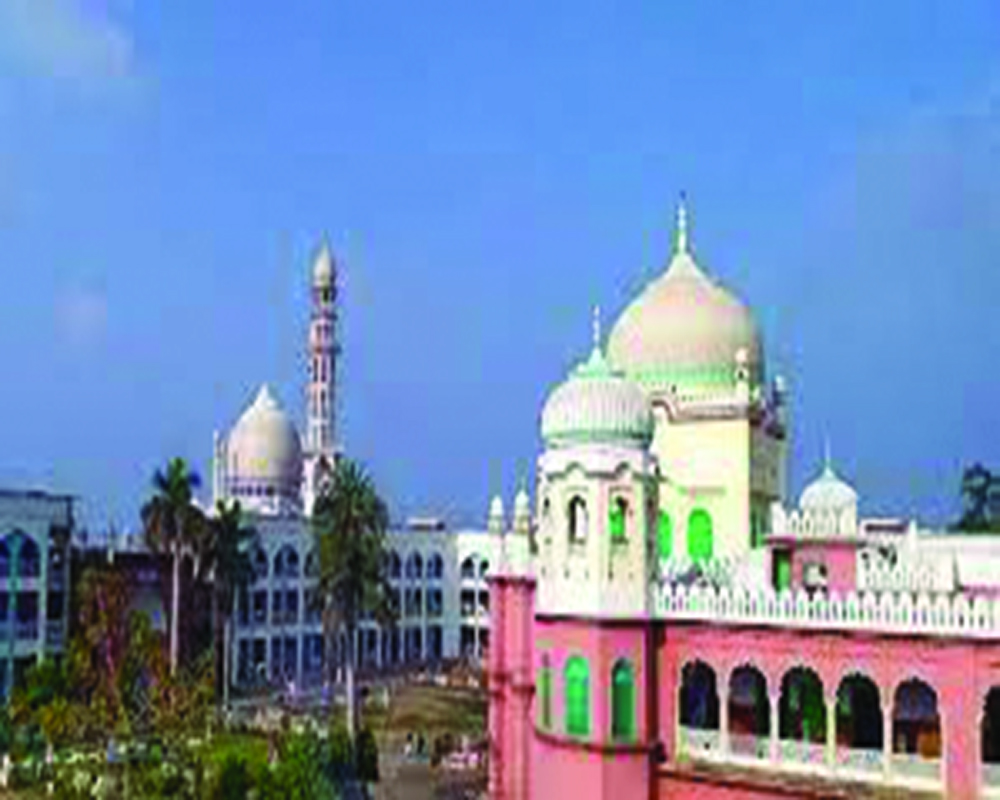Ethics or morality is not part of the mental world of the Chinese; the Hans do not care for any faith, they rather believe in rationality
As I have written earlier in this column, the Han race of China is not religious-minded. Years ago, during a visit to Hong Kong, I happened to strike a conversation with a local Chinese, who told me that they are not a religious people as we Indians are, from the time of Buddha (Indians were religious well before the Buddha). “We can have Confucius for breakfast, Buddha for lunch and Tao for dinner. We like to eat anything that moves,†he explained to me. And, indeed, I saw dead cockroaches being sold like peanuts on the streets of Guangzhou (old Canton). In our 14-day tour of China, in one of its towns, we saw some colourful birds and not-so-wild animals in the zoo. Two ponies were dragging open carts and carrying vegetables, probably to the market, and also a truckload of pigs were being taken for slaughter. That apart, in every classy restaurant we went to in the country, there were two or three huge glass jars with dead snakes floating in them.
What I wish to iterate is that the Hans, who are 92 per cent of the Chinese, do not care for any faith; they believe in rationality, meaning “do what one wishes toâ€. They should not be read through Indian eyes. Scruples play a role only when a Chinese wishes to charm something out of you. Ethics or morality is not a part of their mental world. At the time of the expiry of Hong Kong’s lease in 1997, it was agreed between Beijing and London that Hong Kong would be allowed its autonomy. “One China, two systems†was the slogan. Where does that agreement and slogan lie today? China, after its revolution in 1949, claimed to be merely the suzerain of Tibet. By 1959, the People’s Liberation Army had overrun the Dalai Lama’s country. All promises thereof were dumped.
Any value to commitments is completely lacking in China. We should, therefore, not worry about what we agree to but only what suits our country. The most appropriate strategy for our country at present is for the Government to convey to all Indian chambers of commerce and industry and their members, an all-important message. They must have their input materials made by their associates that may currently be costlier but can gradually be helped to reduce their costs and improve their quality.
My own small companies make toothbrushes and were, until last year, mostly using imported nylon from Shanghai for the bristles. We told our associates in the trade in India to pull up with quality quickly or we would go elsewhere. If they failed to do so, we would import even American nylon although it might cost us 10 or 12 per cent more. Our suppliers are by now delivering good quality at prices lower than China’s. Such an effort should be made by all importers of Chinese finished inputs to eschew their imports. This would improve the Indian economy. A journalistic spread of news is likely to inspire other countries to try to follow a similar endeavour.
Coming to the Taliban in Afghanistan, its religious and ideological mentor, the Deoband seminary, was established soon after the Sepoy Mutiny was over in 1858. It began as a religious school in 1866; its objective was to reinforce Islamic studies and shunning of the English language and Western science as these were seen as contrarian to the purity of Islam. Deoband has remained an orthodox institution; it had recently appointed a vice-chancellor hailing from Gujarat, who proposed that his community should be friendly with the Indian mainstream. This gentleman did not last in his post.
The predictable behaviour of the Taliban in Afghanistan leads to understandable concerns regarding Indian investments in that country. This should be tackled differently. The head of the Deoband seminary should be summoned by a senior official, like the Union Home Secretary, and should be requested firmly to convey to his seminary’s old students, namely the Taliban, not to disturb Indian investments in Afghanistan. Deoband should be made to understand that any adverse outcome on any of our investments would be treated as a hostile act. We can react the way we did at Balakot inside northwest Pakistan not too long ago. Once our armed forces feel they have to act, restraining them for any Government would be near impossible.
Deoband must, therefore, advise the Taliban to behave themselves. Any destruction by them of Indian assets would be tantamount to hitting India. Surely, the Deoband seminary wouldn’t like its former alumni to be at the receiving end of any Indian action. We can talk again to Deoband after it has achieved its mission. As Indian citizens, they can of course be requested for a small service for the nation’s sake. One may thank them for taking the advice of Maulana Abul Kalam Azad and staying back in India. The only stipulation we have is that after Partition, they must consider becoming moderate in their ideology. The general impression is that this seminary is more extreme than necessary.
Otherwise, how has the problem of the Taliban arisen?
(The writer is a well-known columnist, an author and a former member of the Rajya Sabha. The views expressed are personal.)


























